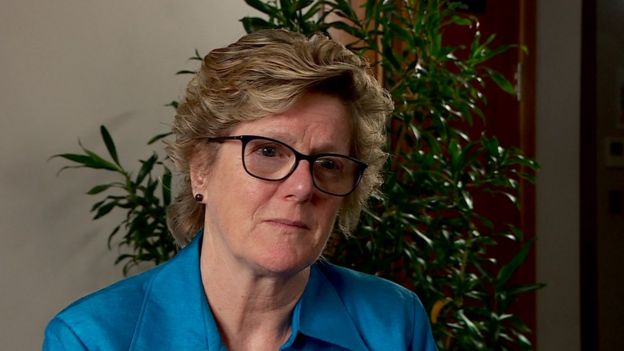Cancer patients should be routinely offered DNA tests to help select the best treatments for them, according to England's chief medical officer.
Prof Dame Sally Davies says in her annual report that the NHS must deliver her "genomic dream" within five years.
Over 31,000 NHS patients, including some with cancer, have already had their entire genetic code sequenced.
Dame Sally wants whole genome screening (WGS) to become as standard as blood tests and biopsies.
Personalised medicine
Humans have about 20,000 genes - bits of DNA code or instructions that control how our bodies works.
Tiny errors in this code can lead to cancer and other illnesses.

Sometimes these mistakes are inherited from a parent, but most of the time they happen in previously healthy cells.
WGS can reveal these errors by comparing tumour and normal DNA samples from the patient.
This information can then improve their diagnosis and care.
Doctors can tailor treatments to the individual, picking the drugs mostly likely to be effective.
And WGS can also show which patients are unlikely to benefit, so they can avoid having unnecessary drugs and unpleasant side-effects.
Dame Sally wants DNA testing to become standard across cancer care, as well as some other areas of medicine, including rare diseases and infections.
"I want the NHS across the whole breadth to be offering genomic medicine - that means diagnosis of our genes - to patients where they can possibly benefit," her report says.
People with rare diseases could benefit from having greater access to the technology, speeding up diagnosis.
Doctors are already using genetic tests to identify and better treat different strains of the infectious disease tuberculosis.
Dame Sally said patients could be assured that their genetic data would be stored securely and "de-identified" so that their privacy would be protected.
Currently, genetic testing of NHS patients in England is done at 25 regional laboratories, as well as some other small centres.
Dame Sally wants to centralise the service and set up a national network to ensure equal access to the testing across the country.
A new National Genomics Board would be set up, chaired by a minister, to oversee the expansion and development of genomic services.

Comments
Post a Comment